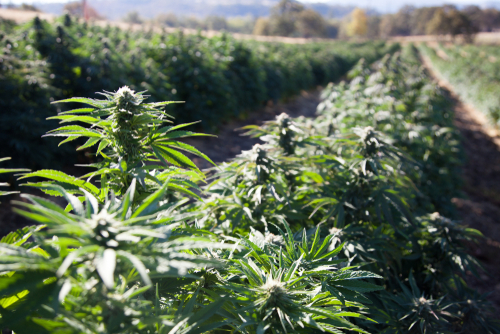How FD&C Act Restrictions Impact The CBD Industry

Richard Lowe of Sugar and Kush CBD provides the breakdown
Skip to a Section
- Drugs vs Supplements
- Immediate Impact of the Drug Designation for CBD
- Advertisers
- Merchant Services
- Best Practices
In 2018 the FDA approved the GW Pharmaceuticals cannabis derived drug Epidiolex. Cannabidiol (CBD) is the main constituent of Epidiolex, an anticonvulsant drug intended to treat certain forms of epilepsy such as Lennox-Gastaut syndrome. Once the FDA approved Epidiolex as a drug, by default they also categorized CBD as a drug instead of a supplement. This has created a myriad of challenges for the CBD industry. SInce most hemp derived CBD products are marketed in a fashion similar to supplements, they are running afoul of the Federal Food, Drug and Cosmetics Act (FD&C Act).
Drugs vs Supplements
According to the FDA website, “Based on available evidence, FDA has concluded that THC and CBD products are excluded from the dietary supplement definition under section 201(ff)(3)(B) of the FD&C Act [21 U.S.C. § 321(ff)(3)(B)].”

As a result, any CBD infused food or CBD product which a company advertises as treating any sort of medical condition is in violation of the law. In other words, despite the enactment of the 2018 Farm Bill which made hemp plants containing less than .3% THC on a dry weight basis and their derivatives legal, most CBD products remain illegal. While the FDA has issued warning letters to certain CBD companies, they have not taken any further action while they continue to evaluate the industry to determine final rules for the commercial sale of CBD products.
Immediate Impact of the Drug Designation for CBD
For most CBD companies, the immediate impact of CBD being labeled as a drug is that a handful of states, certain military branches, many merchant service providers and large mainstream publishers are uninterested in running into conflict with the FD&C Act. The Air Force and Army still ban their active military from using CBD products. South Dakota and Idaho still ban the sale of CBD products. But, the biggest challenges for CBD companies are the limitations in merchant service providers and advertising with the big mainstream publishers.
Advertisers

Many of the mainstream digital publishers are owned by just a handful of media companies like Verizon Media. They manage any sponsored written or video content for their network and offer display advertising. They will list a number of reasons why they are not working with CBD companies at this time and they receive so many inquiries that some of them have even opened up online forums for companies to ask questions or make comments.
It can be a challenge to get a clear answer from them as to why they restrict sponsored CBD related content considering industrial hemp and its derivatives are now legal. If you take a look at the Disallowed and Restricted Products and Services Policies for Microsoft Advertising, which owns publishers like MSN and web properties that offer advertising such as Skype, you will see unclear explanations as to why they restrict advertising for CBD products. Here is the portion of their restriction policy concerning CBD products from the Drugs and related paraphernalia section.
“Advertising that facilitates the distribution, use or cultivation of illegal substances, substances of questionable legality, or substances whose primary purpose seems to be recreational mind alteration.”
The restriction for CBD falls under “substances of questionable legality.” The FDA has sent letters of warning to some of the biggest CBD companies about how they are marketing their products, but otherwise have turned a blind eye. Their eye may refocus on the industry if they see the biggest publishers out there throwing up ads for CBD though, and the big publishers simply do not see it as a worthwhile risk. There are cannabis display advertising networks that exist within the niche though that can be very effective.
Merchant Services

A merchant service provider may terminate a company’s contract without recourse, based on information or claims made on websites, marketing material, social media or product packaging. Services may immediately discontinue leaving companies with no way to process customer orders. This is obviously a massive problem to companies and can bring business to a standstill.
In April, Elavon, U.S. Bank’s payment processor and one of the most commonly used by CBD companies across the country, closed down all of the accounts for its CBD clients and stopped accepting new applications from CBD companies. For many entrepreneurs trying to make it in the CBD industry, these sorts of challenges makes this an unviable business model. However, the interest clearly exists as merchant services can see the strong demand for CBD products. If there is any letup on the federal level, payment processing solutions should become readily available. In the meantime, some providers of merchant services for CBD companies have emerged to combat the payment processing challenges within the industry.
Best Practices
Despite these challenges, the CBD industry continues to persevere and thrive. It may take more diligence, scrutiny and planning by entrepreneurs to run a company that offers CBD products versus a more mainstream business, however the demand for a true rush in this industry is certainly present for those that elect to persevere. Here are some tips for best practices in managing this volatile industry.
Advertising

There are still many publishers, both print and digital, that will work with CBD companies. They may not see as much traffic as the big publishers, but the people interested in CBD will find them all the same. It is important to continue networking and take advantage of the sites with decent amounts of traffic that are open to working with you.
Merchants
A potential solution to the merchant service problem is to have multiple merchant service relationships lined up. If one suddenly decides that you are in breach of contract and discontinues their service, then you can immediately turn to another one so that business remains as uninterrupted as possible.
SEO
Search engine optimization may be the hidden gem of the CBD industry. The vast majority of your customers would find your company through a Google, Bing or Yahoo search, but only if your company is discoverable and appears near the top of the search results. It behooves you to take advantage of this free traffic by organizing your site structure and publishing worthwhile content for your potential customer base. There are only a handful of cannabis advertising companies that help with SEO, but they do exist.
Reporters

There is also the possibility of gaining earned media. If a reporter finds the story you have proposed to them newsworthy enough, they will publish it and possibly mention your company and it won’t cost you anything. However, it can be challenging to get through to reporters. Remember, they are professional researchers and base their credibility on publishing facts. Here are a few tips for reaching out to reporters
- Don’t send generic pitches. Craft an original pitch in part by researching the reporter’s past work.
- Don’t embellish your company by calling yourself a leader or anything along those lines.
- Don’t offer them money and don’t try to fool them either.
This Article Was Created By: Richard Lowe – Content Marketing Manager for Sugar and Kush CBD








































